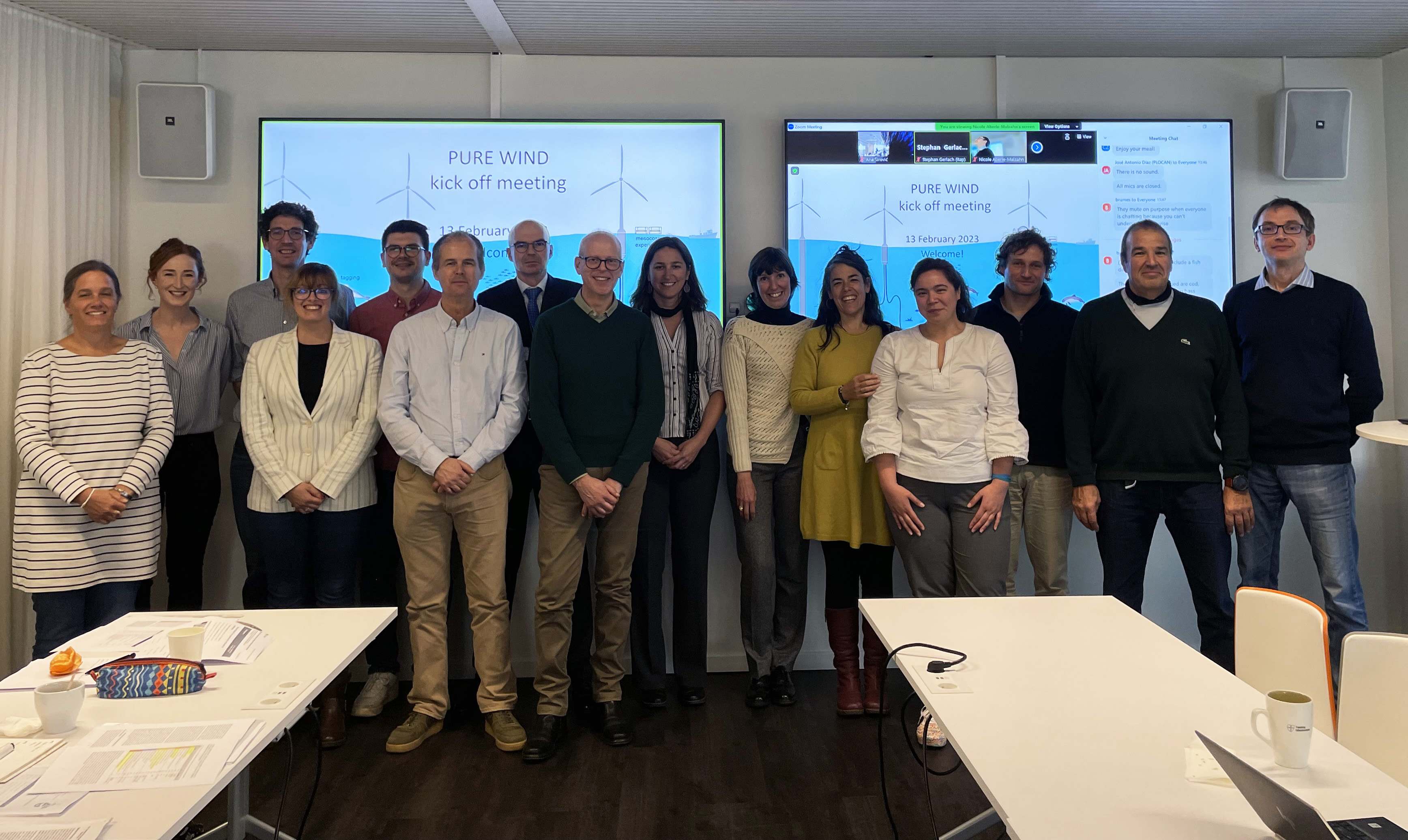
PURE WIND: imPact of soUnd on maRine Ecosystems from offshore WIND energy generation
• Norway: NTNU (Coord.)
• Spain: PLOCAN, ULPGC
• Italy: CNR, UNIGE
• Germany: BSH, TiHO
• Belgium: RBINS
• Poland: Gdynia Maritime U
• Ireland: UCC, GDG
Sounds from offshore wind farms (OWF) are among the main contributors of human-made noise to the marine environment. Substantial effort has been expanded on understanding possible impacts of noise resulting from the development stages, such as prospecting and construction, of the OWF lifecycle. However, despite 30 years of their operation in the EU waters, our understanding of the impacts of the OWF during their operational phase on marine ecosystems is more limited.
PURE WIND is a consortium of 11 multidisciplinary partners from seven countries, Belgium, Germany, Ireland, Italy, Norway, Poland, and Spain, whose aim is to address this gap. We are bringing together acousticians, biologists, ecologists, oceanographers, and social scientists to expand our knowledge of the radiating noise from these operations and their biological consequences, and placing them in the appropriate regulatory contexts. From the acoustic side, we will quantify key features of radiated noise from fixed and floating OWF, to increase understanding and simulate cumulative effect of clusters on radiated noise. This effort will also help us identify sensitive habitats across different soundscapes. Furthering the biological perspective, we will identify how top predators use areas around operating OWF. We will also study the impacts of OWF noise on fish and zooplankton. These efforts will advance our knowledge of the effects of operational OWF noise across the food web.
Harmonising and combining acoustic and biological sides, we will develop knowledge and tools for integration of all aspects of noise production and propagation from operational OWF to facilitate assessment of planned OWF expansion for spatial planning and environmental impact. Finally, we will synthesise relevant learnings and best practices from EU and international experiences with fixed offshore wind development and translate for application in the development of policy, mitigation, and regulation for the floating OWF within national EU frameworks, as well as internationally.
As part of the green shift, a substantial expansion in OWF infrastructure globally is expected. Our data and approaches will help facilitate this transition by providing knowledge necessary to minimize impacts of further industrialization of the offshore ecosystems on the marine life inhabiting it.
JPI Oceans Underwater Noise Projects kick off in Brussels
New website project is created. https://www.ntnu.edu/web/biology/research/marine-sciences/pure-wind


